Monday, December 10, 2012
Literary Analysis #5
Th Boy in the Striped Pajamas
By. John Boyne
GENERAL
1. Briefly summarize the plot of the novel you read, and explain how the narrative fulfills the author's purpose (based on your well-informed interpretation of same).
This novel is about life of a boy name Bruno during World War II. He is a 9 year old boy who lives in Berlin. He had to move to a place called "OUt-With" because his father, high-ranking SS Officer, got promoted to Commandant. Being a little kid, Bruno misses his hometown and unhappy that he doesn't have anyone to talk to. One day he sees a group of people wearing striped pajamas and striped hats. We can figure out that they are Jews. His father tell Bruno that they are not a real people at all. One day, Bruno decides to explore anyway. He finds a boy in his age on the other side of the fence. Bruno gets really excited to see a boy in his age that he introduces himself and find out the other boy's name, Shmuel. Shmuel tells Bruno that he and his family were broken apart and forced to work in Auschwitz. Almost everyday, the two boys meet at the same spot. Soon, they become best friends. One day, Bruno's family decides to move back to Berlin, while the father stays at Auschwitz. Before they move, Bruno agrees to dress in a set of striped pajamas and go under the fence to help Shmuel find his father. Soon they get mixed up in a group of people going on a march. They don't know where they are going, soon they go into a gas chamber. The boys just think it is a place that keeps them from the rain. And the novel ends with Bruno pondering, yet unafraid, in the dark holding hands with Shmuel. In an epilogue, Bruno's family look for Bruno and his father finds Bruno's clothes in front of the fence. Soon find out that his son got killed in the gas chamber. First, he was very depressed but few months later, the Red Army arrives to liberate the camp and orders Bruno's father to go with them. He goes because "he didn't really mind what they did to him anymore."
2. Succinctly describe the theme of the novel. Avoid cliches.
The theme of this book is the strength of friendship. Bruno is a German and Shmuel is a Jewish boy. Even though their country is an enemy, Bruno and Shmuel becomes best friend. Whenever they were sad and having a hard time, they cheered up each other. They both were too innocent to know the difference between them. And their friendship was strong enough to ignore their identity. Even though their innocence and friendship lead them to death, they were happy to be together.
3. Describe the author's tone. Include a minimum of three excerpts that illustrate your point(s).
The tone of this story change over time. Beginning of the story, the tone is just ordinary. The main character is moving but he does not want to. But them, after he meets Shmuel, the tone turns to happy and excited. They become best friend and the life gets very excited for them. In the end, the tone change to sad, hurtful and depress. Even though Bruno and Shmuel are innocent and happy, the readers do not feel that way. It is because the readers know that they are going to die.
4. Describe a minimum of ten literary elements/techniques you observed that strengthened your understanding of the author's purpose, the text's theme and/or your sense of the tone. For each, please include textual support to help illustrate the point for your readers. (Please include edition and page numbers for easy reference.)
Metaphor-compared the jail cloth to striped pajama
Narrator-the Narrator changes his tone in every situation.
Character-We can see their innocent mind.
Setting-they are in the same country, town, area; but different place.
Point-of-view- 3rd person, we can see each character's action.
Mood- change over time;
Foreshadow-foreshadow the death of boys
Symbolism- the striped pajama symbolize that they are Jewish.
CHARACTERIZATION
1. Describe two examples of direct characterization and two examples of indirect characterization. Why does the author use both approaches, and to what end (i.e., what is your lasting impression of the character as a result)?
Shmuel and Bruno is direct characterization. The narrator describes their characteristics. And there is no indirect character in this book.
2. Does the author's syntax and/or diction change when s/he focuses on character? How? Example(s)?
The author's syntax and diction does change when he focuses on character. When the author focuses on character, he gets very descriptive and informative than when he talks about other thing.
3. Is the protagonist static or dynamic? Flat or round? Explain.
The Protagonist is static and flat. Bruno is a 9 year old kid that does not know anything. He starts the novel with being innocent and ends with innocent.
4. After reading the book did you come away feeling like you'd met a person or read a character? Analyze one textual example that illustrates your reaction.
I would love to meet Bruno and Shmuel be cause they are so innocent unlike people now. Even some of nine years old here is no innocent at all. They are very warm-hearted. Bruno and Shmuel becomes best friend even though their country is an enemy with each other. When they were about to die, even though Bruno had weird feeling he was not afraid because he was with Shmuel. "...Despite the chaos that followed, Bruno found that he was still holding Shmuel's hand in his own and nothing in the world would have persuaded him to let it go."
Wednesday, December 5, 2012
Thursday, November 29, 2012
Thinking Outside the Box
Create a post for your blog entitled "Thinking Outside the Box" in which you
compare how Plato and Sartre describe the limitations of our thinking and imply
solutions to the problem. Be sure to analyze their literary techniques,
especially their use of allegory and extended metaphor.
Both Plato and Sartre describe the limitations of our thinking through "Allegory of Cave" and "No Exit." They both send a message of restriction through an extended metaphor. In "Allegory of Cave" the prisoners are locked up in the dark cold cave. They only see the shadows on the wall. Their thinking is limited in there, they just stay in the cave becasue they just want to stick with the reality they have. And in "No Exit", Estella, and Inez are extremely flawed individuals stuck in Hell. All they see in there is all they think.
Both Plato and Sartre describe the limitations of our thinking through "Allegory of Cave" and "No Exit." They both send a message of restriction through an extended metaphor. In "Allegory of Cave" the prisoners are locked up in the dark cold cave. They only see the shadows on the wall. Their thinking is limited in there, they just stay in the cave becasue they just want to stick with the reality they have. And in "No Exit", Estella, and Inez are extremely flawed individuals stuck in Hell. All they see in there is all they think.
Monday, November 26, 2012
Literary Analysis #4
Go Ask Alice
By. Anonymous
1. Briefly summarize the plot of the novel you read.
Go Ask Alice is a realistic fiction. This book is in a diary style that is written by unnamed 15-year-old girl. The diarist moved because of her father's job. She goes to a party and she gets drugged, and she loses her virginity. After this party, she becomes worried everyday. With all the stresses, she gets addicted to the drug. She meets college boys who selling drug. She meets with them and sell drugs for them. After realizing that they are using her to earn money, she turn them in to the police and runs away to San Francisco. She finds a job there but soon gets drugged again by the woman she meets there. Diarist misses her family and wants to get away from the drug. She drifts through homelessness, prostitution, hitchhiking, and homeless shelters, before a priest reunites her with her family. Diarist finally is free to of drugs. Now she does not need diary to talk about her problems, she has her family. The epilogue states that diarist found dead in her home three weeks after the final entry, either by an accidental or premediated overdose.
2. Succinctly describe the theme of the novel. Avoid cliches.
The theme of this book is the problems of adolescent identity. Since the diarist was young as fifteen years old, she needed a care from her family. but her family was always busy and they had to move to nuew place because of her parents' job. All of these situations lead the diarist to miserable life by starting the drug. She did not want to start the drug but at the part her friends mader her to do it. In the book the diarist says, "Oh dear god, help me adjust, help me be accepted, help me belong, don't let me be an outcast and a drag on my famil." This shows that she wants to stop her miserable life for her and her parents, it is just too difficult to go through for her age.
3. Describe the author's tone. Include three excerpts that illustrate your point(s).
The tone of this story change over time. Beginningo fthe story, the tone is happy and naive. But after the diarist moves to San Francisco and start taking drug, the tone become gloomy, world-weary, sad and miserable. And then by the end of the story, the tone change to happy and sweet agian.
4. Describe five literary elements/techniques you observed that strengthen your understanding of the theme and/or your sense of the tone. Include three excerpts (for each element) that will help your reader understand each one.
Tone-change over time. happy-sad-miserable-horrify-sad-happy-sad.
Diction- simple, because it is a point-of-view of 15 year old girl.
Mood-Gloomy through out but bright mood comes out in the beginning and the end.
Characters- diarist used to be happy 15 year old girl but she becomes very gloomy person.
Symbolism-diary, she does not have anyone to talk about her problems. Diary symbolize the loneliness of her life.
Style-This is a diary style.
Flashback- She flashback her old, happy memory often to compare her life right now.
3. Is the protagonist static or dynamic? Flat or round? Explain.
4. After reading the book did you come away feeling like you'd met a person or read a character? Analyze one textual example that illustrates your reaction.
By. Anonymous
1. Briefly summarize the plot of the novel you read.
Go Ask Alice is a realistic fiction. This book is in a diary style that is written by unnamed 15-year-old girl. The diarist moved because of her father's job. She goes to a party and she gets drugged, and she loses her virginity. After this party, she becomes worried everyday. With all the stresses, she gets addicted to the drug. She meets college boys who selling drug. She meets with them and sell drugs for them. After realizing that they are using her to earn money, she turn them in to the police and runs away to San Francisco. She finds a job there but soon gets drugged again by the woman she meets there. Diarist misses her family and wants to get away from the drug. She drifts through homelessness, prostitution, hitchhiking, and homeless shelters, before a priest reunites her with her family. Diarist finally is free to of drugs. Now she does not need diary to talk about her problems, she has her family. The epilogue states that diarist found dead in her home three weeks after the final entry, either by an accidental or premediated overdose.
2. Succinctly describe the theme of the novel. Avoid cliches.
The theme of this book is the problems of adolescent identity. Since the diarist was young as fifteen years old, she needed a care from her family. but her family was always busy and they had to move to nuew place because of her parents' job. All of these situations lead the diarist to miserable life by starting the drug. She did not want to start the drug but at the part her friends mader her to do it. In the book the diarist says, "Oh dear god, help me adjust, help me be accepted, help me belong, don't let me be an outcast and a drag on my famil." This shows that she wants to stop her miserable life for her and her parents, it is just too difficult to go through for her age.
3. Describe the author's tone. Include three excerpts that illustrate your point(s).
The tone of this story change over time. Beginningo fthe story, the tone is happy and naive. But after the diarist moves to San Francisco and start taking drug, the tone become gloomy, world-weary, sad and miserable. And then by the end of the story, the tone change to happy and sweet agian.
4. Describe five literary elements/techniques you observed that strengthen your understanding of the theme and/or your sense of the tone. Include three excerpts (for each element) that will help your reader understand each one.
Tone-change over time. happy-sad-miserable-horrify-sad-happy-sad.
Diction- simple, because it is a point-of-view of 15 year old girl.
Mood-Gloomy through out but bright mood comes out in the beginning and the end.
Characters- diarist used to be happy 15 year old girl but she becomes very gloomy person.
Symbolism-diary, she does not have anyone to talk about her problems. Diary symbolize the loneliness of her life.
Style-This is a diary style.
Flashback- She flashback her old, happy memory often to compare her life right now.
CHARACTERIZATION
1. Describe two examples of direct characterization and two examples of indirect characterization. Why does the author use both approaches, and to what end (i.e., what is your lasting impression of the character as a result)?
1. Describe two examples of direct characterization and two examples of indirect characterization. Why does the author use both approaches, and to what end (i.e., what is your lasting impression of the character as a result)?
Diarist is a indirect character because the reader can find out her characterics by how she acts. Since this is in a diary-style of novel, she does not directly tell her who she is. We don't even know her name.
It is hard to choose characters becasue diarist is the only character that appears in the story often. Other charcters are people who appears for little bit to give the diarist hard time.
2. Does the author's syntax and/or diction change when s/he focuses on character? How? Example(s)?
It is hard to choose characters becasue diarist is the only character that appears in the story often. Other charcters are people who appears for little bit to give the diarist hard time.
2. Does the author's syntax and/or diction change when s/he focuses on character? How? Example(s)?
This book is a diary-style so she does not change her syntax and diction when she focuses on characters. She does not describe each characters deeply becasue they are not the "main" character in the story. They appears for little bit.
3. Is the protagonist static or dynamic? Flat or round? Explain.
The protagonist of the novel is dynamic and round. In the beginning of the novel she was a ordinary bright 15 year old gir. But after she moves to the place she never been before and she gets into drug, she becomes gloomy and sad everyday.
4. After reading the book did you come away feeling like you'd met a person or read a character? Analyze one textual example that illustrates your reaction.
I would love to meet the diarist. I feel very sad about her. She had to go through all these difficulties because she could not get care from her parents. They were so busy. That is why she made this diary to talk about her problems. At the end, we know that she died when she finally finds the happiness of her life. I wish we can go back time and I can meet her to tell her that I care about her and maybe we can become a great friend.
Saturday, November 24, 2012
Sonnet
Hear me people in the cave
Listen to me, people in chain
Don't be afraid and be brave
Step outside and throw away the pain.
From the fire and flame,
by the chain and the shadow,
several prisoners with unknown name
are living in the locked up show
All they need is a little courage
a little push to see the bright sunlight
now they walk across the bridge
getting away from the dark, flame night
No one belongs in the cave
but people that can be free is someone brave.
Listen to me, people in chain
Don't be afraid and be brave
Step outside and throw away the pain.
From the fire and flame,
by the chain and the shadow,
several prisoners with unknown name
are living in the locked up show
All they need is a little courage
a little push to see the bright sunlight
now they walk across the bridge
getting away from the dark, flame night
No one belongs in the cave
but people that can be free is someone brave.
Monday, November 19, 2012
Plato's Allegory of the Cave
1. According to Socrates, what does the Allegory of the Cave
represent?
According to Socrates, Allegory of the Cave represent how people in the cave only see and think what they see through the shadow. Not knowing anyother world outside of the cave.
2. What are the key elements in the imagery used in the allegory?
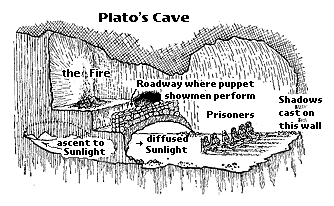
3. What are some things the allegory suggests about the process of enlightenment or education?
About the process of enlightenment or education, allegory suggests ,"- certain professors of education must be wrong when they say that they can put a knowledge into the soul which was not there before, like sight into blind eyes,"" the power and capacity of learning exists in the soul already." Also that some people does not like to know about new things because they feel safe with what they already know.
4. What do the imagery of "shackles" and the "cave" suggest about the perspective of the cave dwellers or prisoners?
The imagery of "shackles" and the "cave" suggest that people in the cave is controlled and also limited on what they do and what they think by their environment.
5. In society today or in your own life, what sorts of things shackle the mind?
In society today, money shackle peoples' mind. Students study and try to get into good college, not to reach the dream they always dreamed of, but to be successful. It is hard to live without money now.
6. Compare the perspective of the freed prisoner with the cave prisoners?
The freed prisoner can actually compare the world outside of the cave and inside of the cave. And find that it is better to live outside. But the cave prisoner will never know how the outside world is. So they would never try to be free and get out the the cave.
7. According to the allegory, lack of clarity or intellectual confusion can occur in two distinct ways or contexts. What are they?
When someone is imexperienced in something and when someone deny to accept the new thing.
8. According to the allegory, how do cave prisoners get free? What does this suggest about intellectual freedom?
The prisoners are free when they actually try to be free. They just need to "try" and step out of the cave. This suggest that intellectual freedom can be forced sometimes and need to get use to it.
9. The allegory presupposes that there is a distinction between appearances and reality. Do you agree? Why or why not?
Yes I think there is a distinction between appearances and reality becasue appearance shows in reality. The reality of person shows the real appreance of the person.. (right? haha)
10. If Socrates is incorrect in his assumption that there is a distinction between reality and appearances, what are the two alternative metaphysical assumptions?
According to Socrates, Allegory of the Cave represent how people in the cave only see and think what they see through the shadow. Not knowing anyother world outside of the cave.
2. What are the key elements in the imagery used in the allegory?

3. What are some things the allegory suggests about the process of enlightenment or education?
About the process of enlightenment or education, allegory suggests ,"- certain professors of education must be wrong when they say that they can put a knowledge into the soul which was not there before, like sight into blind eyes,"" the power and capacity of learning exists in the soul already." Also that some people does not like to know about new things because they feel safe with what they already know.
4. What do the imagery of "shackles" and the "cave" suggest about the perspective of the cave dwellers or prisoners?
The imagery of "shackles" and the "cave" suggest that people in the cave is controlled and also limited on what they do and what they think by their environment.
5. In society today or in your own life, what sorts of things shackle the mind?
In society today, money shackle peoples' mind. Students study and try to get into good college, not to reach the dream they always dreamed of, but to be successful. It is hard to live without money now.
6. Compare the perspective of the freed prisoner with the cave prisoners?
The freed prisoner can actually compare the world outside of the cave and inside of the cave. And find that it is better to live outside. But the cave prisoner will never know how the outside world is. So they would never try to be free and get out the the cave.
7. According to the allegory, lack of clarity or intellectual confusion can occur in two distinct ways or contexts. What are they?
When someone is imexperienced in something and when someone deny to accept the new thing.
8. According to the allegory, how do cave prisoners get free? What does this suggest about intellectual freedom?
The prisoners are free when they actually try to be free. They just need to "try" and step out of the cave. This suggest that intellectual freedom can be forced sometimes and need to get use to it.
9. The allegory presupposes that there is a distinction between appearances and reality. Do you agree? Why or why not?
Yes I think there is a distinction between appearances and reality becasue appearance shows in reality. The reality of person shows the real appreance of the person.. (right? haha)
10. If Socrates is incorrect in his assumption that there is a distinction between reality and appearances, what are the two alternative metaphysical assumptions?
Tuesday, November 13, 2012
Vocab Remix
1) malcontent - (adj.) Dissatisfied and complaining or making trouble.

2)bane - (noun) A cause of great distress or annoyance.

3)bête noire: (noun) something that is particularly disliked

4)tautology: (noun) the use of words that merely repeat elements of the meaning already conveyed

5) prototype: (noun) one of the first units manufactured of a product, which is tested so that the design can be changed if necessary before the product is manufactured

6)dissimulate-Conceal or disguise (one's thoughts, feelings, or character)

7)lackey-A servant

8)impasse-A road or passage having no exit;A situation that is so difficult that no progress can be made

9)lugubrious-looking or sounding sad or dismal

10)constrict-to make narrow as by squeezing

11)raconteur- a person who tells enecdotes in a skillful and amusing way

12)quagmire- an awkward, complex, or hazardous situation

13)Derring-do- brave and heroic feats

14)Risible- provoking laughter

15)Panache: Flamboyant confidence of style or manner

16)Internecine: destructive to both sides in a conflict

17)Prescience: the power to foresee the future

18)Gambol- (V.) Run or jump about playfully

19)Queasy- (Adj.) Nauseated; feeling sick

20)Refractory- (Adj.) Stubborn or unmanageable


2)bane - (noun) A cause of great distress or annoyance.

3)bête noire: (noun) something that is particularly disliked

4)tautology: (noun) the use of words that merely repeat elements of the meaning already conveyed

5) prototype: (noun) one of the first units manufactured of a product, which is tested so that the design can be changed if necessary before the product is manufactured

6)dissimulate-Conceal or disguise (one's thoughts, feelings, or character)

7)lackey-A servant

8)impasse-A road or passage having no exit;A situation that is so difficult that no progress can be made

9)lugubrious-looking or sounding sad or dismal

10)constrict-to make narrow as by squeezing

11)raconteur- a person who tells enecdotes in a skillful and amusing way

12)quagmire- an awkward, complex, or hazardous situation

13)Derring-do- brave and heroic feats

14)Risible- provoking laughter

15)Panache: Flamboyant confidence of style or manner
16)Internecine: destructive to both sides in a conflict

17)Prescience: the power to foresee the future
18)Gambol- (V.) Run or jump about playfully

19)Queasy- (Adj.) Nauseated; feeling sick

20)Refractory- (Adj.) Stubborn or unmanageable

Monday, November 12, 2012
Literary Analysis #3
Cannery Row
By. John Steinbeck
GENERAL
1. Briefly summarize the plot of the novel you read, and explain how the narrative fulfills the author's purpose (based on your well-informed interpretation of same).
This novel starts with explaining the town in Monteray and the town people. Mack and boys are a group of unemployed boys, trouble makers, yet "resourceful men who inhabit a converted fish-meal shack on the edge of a vacant lot down on the Row" in the town. They want to throw a thank-you party for Doc who helps them very nicely. Soon, all of the town people get involved in the party. However, the party didn't go too well, it went out of control. When Doc comes back to his house, he sees that his house and his lab are ruined, also Doc's mood. Town people feels bad for Doc and boys decide to throw another party that Doc will get happy and that actually work. This time, they put more careful effort into it, and the party was very successful. And the novel ends with Doc cleaning and thinking about the life after the party.
2. Succinctly describe the theme of the novel. Avoid cliches.
The theme of the novel would be lonliness. Even though they are busy with their work, they find themselves very lonely. The most lonley character in the novel is Doc which Steinbeck described him “lonely and set-apart man” (92). At first, we think his doesn't care, but we can see see that he is very lonely throughout the novel. And meeting Mack and boys, eventhough they are very annoying, he gets his lonliness away from him.
3. Describe the author's tone. Include a minimum of three excerpts that illustrate your point(s).
The tone of this novel is very calm. there were not many exciting or happy or sad parts. it was mostly calm and quiet.
4. Describe a minimum of ten literary elements/techniques you observed that strengthened your understanding of the author's purpose, the text's theme and/or your sense of the tone. For each, please include textual support to help illustrate the point for your readers. (Please include edition and page numbers for easy reference.)
Conflict : when Mack and boys ruined Doc's house and laboratory for having 'out-of-control' party.
Setting: Every events happen in the town in Monteray.
Mood: Calm, quiet, and steady.
Point-of-view: 3rd person.
Syntax- The author focused on lengthy descriptions than dialogue.
Diction- The author repeated and used the same/similar words in one sentence. Simple diction.
Simile- “His fat delicate hands rested on the glass, the fingers moving like small restless sausages.” (10)
Can't find anymore :(
CHARACTERIZATION
1. Describe two examples of direct characterization and two examples of indirect characterization. Why does the author use both approaches, and to what end (i.e., what is your lasting impression of the character as a result)?
The direct characters are Mack and the boys. They are very straight out and they do whatever they do. The indirect character is Doc. He is very quiet and emotionless character. It is hard to understand his feeling until Steinbeck describe them in lenghty description.
Author used this to show emphasize the difference between Doc and Mack and boys and how they get along at the end.
2. Does the author's syntax and/or diction change when s/he focuses on character? How? Example(s)?
No, syntax and diction stay neutral through out the novel. Author uses lengthy description and his diction is very simple. Nothing change.
3. Is the protagonist static or dynamic? Flat or round? Explain.
The protagonist is round but static. Doc is very quiet and calm through out the whole novel. His characteristic does not change but he does change his view of his town friends. He starts to trust them and rely on them.
4. After reading the book did you come away feeling like you'd met a person or read a character? Analyze one textual example that illustrates your reaction.
I would love to meet Doc. He seems like a very nice and calm person. And I love those kind of people. They are not in any hurry or too talkative. PERFECT for me :)
By. John Steinbeck
GENERAL
1. Briefly summarize the plot of the novel you read, and explain how the narrative fulfills the author's purpose (based on your well-informed interpretation of same).
This novel starts with explaining the town in Monteray and the town people. Mack and boys are a group of unemployed boys, trouble makers, yet "resourceful men who inhabit a converted fish-meal shack on the edge of a vacant lot down on the Row" in the town. They want to throw a thank-you party for Doc who helps them very nicely. Soon, all of the town people get involved in the party. However, the party didn't go too well, it went out of control. When Doc comes back to his house, he sees that his house and his lab are ruined, also Doc's mood. Town people feels bad for Doc and boys decide to throw another party that Doc will get happy and that actually work. This time, they put more careful effort into it, and the party was very successful. And the novel ends with Doc cleaning and thinking about the life after the party.
2. Succinctly describe the theme of the novel. Avoid cliches.
The theme of the novel would be lonliness. Even though they are busy with their work, they find themselves very lonely. The most lonley character in the novel is Doc which Steinbeck described him “lonely and set-apart man” (92). At first, we think his doesn't care, but we can see see that he is very lonely throughout the novel. And meeting Mack and boys, eventhough they are very annoying, he gets his lonliness away from him.
3. Describe the author's tone. Include a minimum of three excerpts that illustrate your point(s).
The tone of this novel is very calm. there were not many exciting or happy or sad parts. it was mostly calm and quiet.
4. Describe a minimum of ten literary elements/techniques you observed that strengthened your understanding of the author's purpose, the text's theme and/or your sense of the tone. For each, please include textual support to help illustrate the point for your readers. (Please include edition and page numbers for easy reference.)
Conflict : when Mack and boys ruined Doc's house and laboratory for having 'out-of-control' party.
Setting: Every events happen in the town in Monteray.
Mood: Calm, quiet, and steady.
Point-of-view: 3rd person.
Syntax- The author focused on lengthy descriptions than dialogue.
Diction- The author repeated and used the same/similar words in one sentence. Simple diction.
Simile- “His fat delicate hands rested on the glass, the fingers moving like small restless sausages.” (10)
Can't find anymore :(
CHARACTERIZATION
1. Describe two examples of direct characterization and two examples of indirect characterization. Why does the author use both approaches, and to what end (i.e., what is your lasting impression of the character as a result)?
The direct characters are Mack and the boys. They are very straight out and they do whatever they do. The indirect character is Doc. He is very quiet and emotionless character. It is hard to understand his feeling until Steinbeck describe them in lenghty description.
Author used this to show emphasize the difference between Doc and Mack and boys and how they get along at the end.
2. Does the author's syntax and/or diction change when s/he focuses on character? How? Example(s)?
No, syntax and diction stay neutral through out the novel. Author uses lengthy description and his diction is very simple. Nothing change.
3. Is the protagonist static or dynamic? Flat or round? Explain.
The protagonist is round but static. Doc is very quiet and calm through out the whole novel. His characteristic does not change but he does change his view of his town friends. He starts to trust them and rely on them.
4. After reading the book did you come away feeling like you'd met a person or read a character? Analyze one textual example that illustrates your reaction.
I would love to meet Doc. He seems like a very nice and calm person. And I love those kind of people. They are not in any hurry or too talkative. PERFECT for me :)
Monday, November 5, 2012
Vocab #11
Affinity- A spontaneous or natural liking or sympathy for someone or something.
I feel affinity when I see abandoned animals.
Bilious- Affected by or associated with nausea or vomiting.
Bilious- Affected by or associated with nausea or vomiting.
After seeing Zombie movies, I feel like bilious.
Cognate- Having the same linguistic derivation as another; from the same original word or root
Cognate- Having the same linguistic derivation as another; from the same original word or root
Prefix un- and in- are cognate.
Corollary- A proposition inferred Immediately from a proved proposition with little or no additional proof
Cul-de-sac - a passage with access only at one end.
Corollary- A proposition inferred Immediately from a proved proposition with little or no additional proof
Cul-de-sac - a passage with access only at one end.
Bad leader will lead the group to cul-de-sac.
Derring-do- brave and heroic feats.
Not all the superheroes are Derring-do.
Divination- The practice of seeking knowledge of the future or the unknown by supernatural means.
Palm-reading is a type of divination.
Elixir- A magical or medicinal potion.
Living in positive life is the elixir.
Folderol- Foolishness; nonsense
People look at me as folderol all the times because of my childish behavior.
Gamut- an entire range or series
Reading all of the gamut of Harry Potter is just awesome!
Hoi polloi- The masses; the common people
President need to think about Hoi polloi and listen to their opinions.
Ineffable- Too great or extreme to be expressed or described in words:
After receiving acceptance letter from college, I was very ineffable that I could not talk.
Lucubration- to study by night
Her lucubration showed on her final exams grade.
Mnemonic- A device such as a pattern of letters, ideas, or associations that assists in remembering something.
Flashcards are mnemonic for studying words.
Obloquy- Strong public criticism or verbal abuse.
You need to know how to get over obloquy and help yourself to improve.
Parameter-A numerical or other measurable factor forming one of a set that defines a system or sets the conditions of its operation.
Pundit- An expert in a particular subject or field who is frequently called on to give opinions about it to the public.
It is always better to get help from pundit.
Risible- provoking laughter
Please don't risible, it can hurt people's feeling.
Symptomatic- Serving as a symptom or sign, esp. of something undesirable.
We can't predict symptomatic things.
Volte-face- about-face: a major change in attitude or principle or point of view;
She became volte-face after losing 20 pounds.
Derring-do- brave and heroic feats.
Not all the superheroes are Derring-do.
Divination- The practice of seeking knowledge of the future or the unknown by supernatural means.
Palm-reading is a type of divination.
Elixir- A magical or medicinal potion.
Living in positive life is the elixir.
Folderol- Foolishness; nonsense
People look at me as folderol all the times because of my childish behavior.
Gamut- an entire range or series
Reading all of the gamut of Harry Potter is just awesome!
Hoi polloi- The masses; the common people
President need to think about Hoi polloi and listen to their opinions.
Ineffable- Too great or extreme to be expressed or described in words:
After receiving acceptance letter from college, I was very ineffable that I could not talk.
Lucubration- to study by night
Her lucubration showed on her final exams grade.
Mnemonic- A device such as a pattern of letters, ideas, or associations that assists in remembering something.
Flashcards are mnemonic for studying words.
Obloquy- Strong public criticism or verbal abuse.
You need to know how to get over obloquy and help yourself to improve.
Parameter-A numerical or other measurable factor forming one of a set that defines a system or sets the conditions of its operation.
Pundit- An expert in a particular subject or field who is frequently called on to give opinions about it to the public.
It is always better to get help from pundit.
Risible- provoking laughter
Please don't risible, it can hurt people's feeling.
Symptomatic- Serving as a symptom or sign, esp. of something undesirable.
We can't predict symptomatic things.
Volte-face- about-face: a major change in attitude or principle or point of view;
She became volte-face after losing 20 pounds.
Growing my PLN
I outreached to http://www.pathguy.com/hamlet.htm because this website had the most useful informations. However, I am not sure how old this website is. Hopefully I can get a reply!
Sonnet
Red Blushed And All Cut UpBy Paul McCann
Talking to myself there
Someone had overheard.
I was lost for a word.
There was nothing to share.
Embarrassed I was there.
Left awkward and absurd .
A broken wingless bird.
With nowhere to fly there.
Caught red faced there was I.
Didn't want to be seen.
I just wanted to die.
I just wanted to scream.
I'm so terribly shy.
Lost for words it would seem.
AP Hamlet PLM
So,, sorry for the late post, I was out of town this whole weekend :(
http://www.pathguy.com/hamlet.htm
This website is very useful. It has very descriptive summary of each chapters, the backgrounds of the Hamlet, and the themes of the play. And it is not just listed, it very descriptive and it is easy to understand them. If I didn't read Hamlet and found this website, I would have know the story and even the background of the play!
http://2011apenglish.blogspot.com/2010/11/hamlet-test-monday-or-tuesday-or-both.html
When I found this website, I thought it was very interesting! It is just like our english blog. It has the quotes from the Hamlet, essays, questions, and more. It may not be descriptive like other professional websites but since we get to see comments from other students, I get to learn all those different perspectives!
http://apbridges.blogspot.com/
I found another blog! And this one is very recent one. I think this is one of the AP teacher's blog. It has all the Hamlet notes, videos, lesson plans. I think it is very interesting to see other classes using blog!
http://wrhsblogs.pasco.k12.fl.us/users/dquarrella/search/?q=hamlet
This blog is very useful too! It has reviews, questions, essay topics, videos and many more. I think this is AP teacher's blog too. It has many files so we can keep them and use it for study Hamlet! And this blog is pretty recent so it can help alot.
http://aplove.blogspot.com/search?q=hamlet
Lastly, this blog is very neat. It has all the short but descriptive summary of each scenes and study guides. It is pretty old but it would not effect that much of difference.
http://www.pathguy.com/hamlet.htm
This website is very useful. It has very descriptive summary of each chapters, the backgrounds of the Hamlet, and the themes of the play. And it is not just listed, it very descriptive and it is easy to understand them. If I didn't read Hamlet and found this website, I would have know the story and even the background of the play!
http://2011apenglish.blogspot.com/2010/11/hamlet-test-monday-or-tuesday-or-both.html
When I found this website, I thought it was very interesting! It is just like our english blog. It has the quotes from the Hamlet, essays, questions, and more. It may not be descriptive like other professional websites but since we get to see comments from other students, I get to learn all those different perspectives!
http://apbridges.blogspot.com/
I found another blog! And this one is very recent one. I think this is one of the AP teacher's blog. It has all the Hamlet notes, videos, lesson plans. I think it is very interesting to see other classes using blog!
http://wrhsblogs.pasco.k12.fl.us/users/dquarrella/search/?q=hamlet
This blog is very useful too! It has reviews, questions, essay topics, videos and many more. I think this is AP teacher's blog too. It has many files so we can keep them and use it for study Hamlet! And this blog is pretty recent so it can help alot.
http://aplove.blogspot.com/search?q=hamlet
Lastly, this blog is very neat. It has all the short but descriptive summary of each scenes and study guides. It is pretty old but it would not effect that much of difference.
Monday, October 29, 2012
Vocab #10
Aficionado:
| |
Browbeat:
be bossy towards
(v)

Commensurate: corresponding in size or degree or extent (adj)

Diaphanous:
so thin as to transmit light (adj)

Emolument:
A salary, fee, or profit from employment or office.
Foray: sudden attack or incursion into enemy territory, esp. to obtain
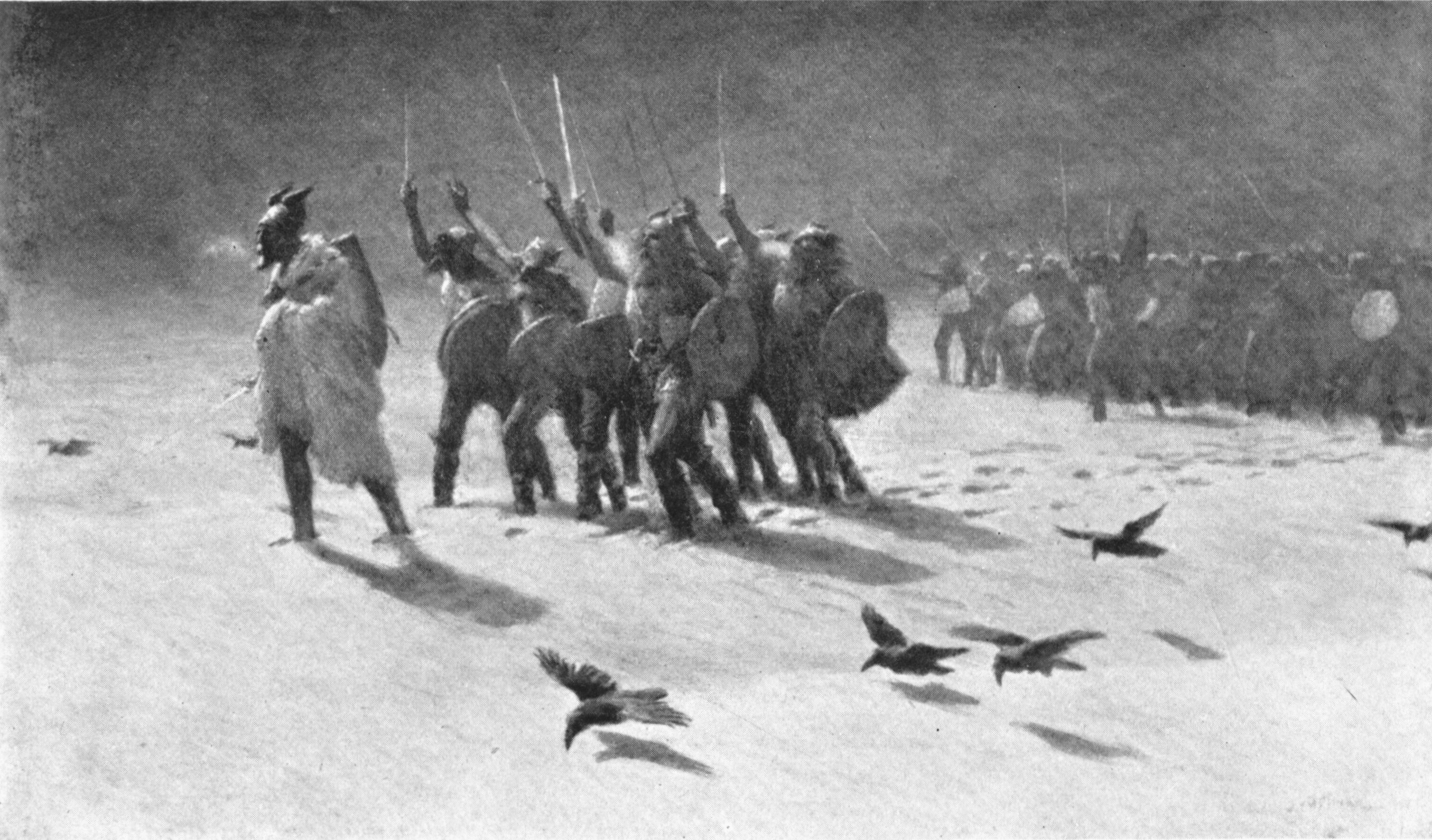
Genre: a kind of literary or artistic work (n)
a style of
expressing yourself in writing
an
expressive style of music

Homily: a sermon on a moral or religious topic (n)
 Insouciant: marked by
blithe unconcern (adj)
Insouciant: marked by
blithe unconcern (adj)
Matrix: An environment or material in which something develops.

Obsequies: a funeral or funeral
ceremony. (n)

Panache: Flamboyant confidence of style or manner.
Persona:
The aspect of someone's character that is presented to or perceived by others.
Philippic: aA bitter attack or denunciation, esp. a verbal one.

Prurient:
Having or encouraging an excessive interest in sexual matters.
Sacrosanct:
must be kept sacred (adj)

Systemic: affecting an entire system. (adj)
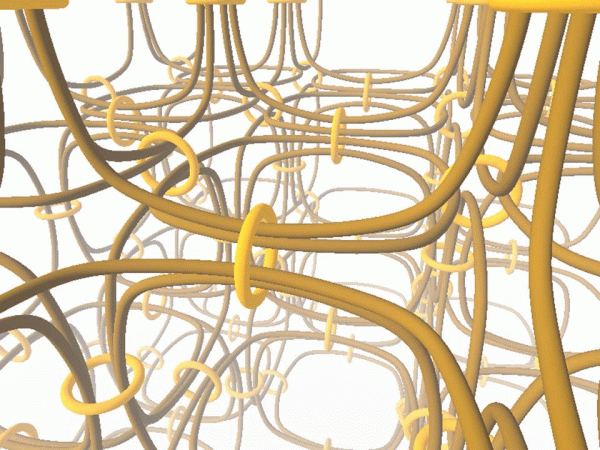
Tendentious: having or marked by a strong tendency
especially a controversial one (adj)
Vicissitude: A change of circumstances or fortune, typically one that is unwelcome or unpleasant.

Sunday, October 28, 2012
Literary Analysis #2 The Lovely Bones
GENERAL
1.
Briefly summarize the plot of the novel you
read, and explain how the narrative fulfills the author's purpose (based on
your well-informed interpretation of same).
Susie Salmon is the main character
and also the narrator of this novel. She was raped and murdered on December 6,
1973 by her neighbor. And the story moves on to the afterlife of Susie and she
can see the world
from the heaven. Officers and Susie’s family try to figure out the crime of her
death. The case was going in the wrong direction and Susie was very frustrated
seeing the murderer, Mr. Harvey, living calmly life. Susie’s father, Len
Fenerman, does not feel satisfy with his investigation, he starts his own investigation of Susie’s murder. This
investigation leads Jack to suspect George Harvey. However, police cannot
arrest Harvey because there is no evidence linking Harvey to Susie. In heaven,
Susie meets and learns the stories of all of his victims. She sees Harvey hide
her body, lie to her father and the police, and run from the crimes he has
committed. Susie wants to help the living apprehend her killer, but can only
watch as the police and her family try to gather evidence and find her
murderer. During this investigation, Susie’s family faces troubles. Her mother
wants to end the investigation while her father wants to catch the murderer.
Susie feels crush seeing her family being like that. However, when Susie’s
father gets sent to hospital for heart attack, her family unites again.
Meanwhile, Mr. Harvey dies by falling into a ravine.
He was never caught. However, Susie is satisfied with her life now in heaven
since her family got happy again.
2.
Succinctly describe the theme of the novel.
Avoid cliches.
The theme of the novel would importance of
family. After the death of Susie, her family worked very hard to find the
murderer. Because of that, her family faces many troubles. Watching from the
heaven, Susie learns the importance of family. Even though the murderer never
gets caught (instead he dies), Susie did not care since her family finally get
united again in the end.
3.
Describe the author's tone. Include a minimum of
three excerpts that illustrate your point(s).
The author’s tone of this novel is gloomy
and vengeful.
“My name was Salmon, like the fish; first name,
Susie. I was fourteen when I was murdered on December 6, 1973.” This is the
very first line of the novel. This helps out the reader to understand how the
mood of the story will be.
“I knew he was going to kill me. I did not
realize then that I was an animal already dying.”
“I could not have what I wanted most: Mr.
Harvey dead and me living. Heaven wasn't perfect."
4.
Describe a minimum of ten literary
elements/techniques you observed that strengthened your understanding of the
author's purpose, the text's theme and/or your sense of the tone. For each,
please include textual support to help illustrate the point for your readers.
(Please include edition and page numbers for easy reference.)
Foreshadow: when Susie is walking home and
meets up with Mr. Harvey, several factors present themselves as warnings she
never heeds. Also Susie’s obsession with Ray will prepare us for the love scene at the end of the novel.
Irony: it is ironic when Mr. Harvey uses
his victims’ names to refer to his imaginary wife. Also it’s ironic that
Susie’s charm bracelet is finally found when it’s no longer needed, not even by
her.
Simile: "My parents were
like sleepwalkers saying yes to his questions, nodding their heads to flowers
or speakers" (p.98)
Metaphor:
"Samuel and I saw the tremor. The inside shakeoff of her heart"
(p.122)
Imagery: "We
both listened together to the rain pour down and the thunder clap and smelled
the earth rising to greet us" (Sebold, 211).
Symbolism: “The only sound I made after
that was a weak tinkling of bells.” (p.81)
Susie's jingly cap is a homemade symbol of her mother's love and care.
Point
of View: Susie is the main character of the novel and also the narrator. So the
whole novel is based on Susie’s point of view.
“My
name was Salmon, like the fish; first name, Susie. I was fourteen when I was
murdered on December 6, 1973.” (p.5)
Mood:
The mood that appears in this novel is mostly
gloomy. At times, the mood is also suspenseful as we watch Mr. Harvey stalk his
victims. In the end, however, it is also about happiness and the quiet
satisfaction of the acceptance of life brings.
Setting: The
setting is interesting because it is Heaven and the Earth. Susie is in the
heaven while all of her people are in the Earth.
Conflict: The
conflict would be when Susie gets raped and killed and when her family falls
apart.
CHARACTERIZATION
1.
Describe two examples of direct characterization
and two examples of indirect characterization.
Why does the author use both approaches, and to what end (i.e., what is
your lasting impression of the character as a result)?
Actually none of the characters are direct
characters. Susie is the narrator, so she does not describe herself very well.
And she does not introduce her family to the readers that much. Us, the reader
has to figure out character’s characterizations by how they talk and acts.
2.
Does the author's syntax and/or diction change
when s/he focuses on character?
How? Example(s)?
The author’s syntax and/or diction do not
change when she focuses on character. Susie does not change them when she talks
about her family. She does not get very
detailed when she talk about the characters.
“My father was the one who took the phone
call on December ninth.” (p.20) This was the first time her father appeared but
we never get more description of her dad.
3.
Is the protagonist static or dynamic? Flat or round? Explain.
The protagonist is static and flat character.
From the beginning to the end, Susie remained innocent little girl. While other
characters are changing because of Susie’s death, Susie most likely stayed the
same.
4.
After reading the book did you come away feeling
like you'd met a person or read a character?
Analyze one textual example that illustrates your reaction.
I would love the meet Susie Salmon. I want
to encourage her and tell her that her family is doing fine. She is a poor
little girl who got murdered in horrifying way. And she had to see her family
going through bad times in the heaven.
"Now I am in the place I call this
wide wide Heaven because it includes all my simplest desires but also the most
humble and grand. The word my grandfather uses is comfort.” After going through the worst period of times, Susie finally
can be happy in the heaven with her grandfather.
Wednesday, October 24, 2012
Internet/media/technology
Internet/media/technology changes the way
I think in bad way and also in good way. First, I think they are beneficial
because it helps me to find answer very quickly and easily. Going in the google
and type the first few letters and it directly find the words for you. However,
I do think this is making my brain lazier and lazier everyday. They don't really
need to work hard to find answer since you can just google them! And you can't
concentrate on anything if computer is on. After awhile you will find yourself
in facebook page or something. However, for our generation, it is hard to live
without technology.
Tuesday, October 23, 2012
Notes on Hamlet.
When we began reading Hamlet I really didn't like it because I knew that the play will be very difficult to understand. And it is. But reading in the class together helps me so much since we discuss between lines. I think the characters are becomming more and more crazy and weird. I know that Hamlet is "acting" crazy but I think he is really being crazy now. I was surprised that he killed Polonius accidently. I didn't expected him to make mistake over his furiousness. I think the story will get more and more crazy and dark. And most likely the play will end with tragedy.
Who was Shakespeare?
William Shakespeare is a very well known as play writter. However, his history is somewhat mysterious. What we do know about his life comes from registrar records, court records,
wills, marriage certificates and his tombstone. Shakespeare wrote plays and poems. His plays were comedies, histories and
tragedies. His most famous tragedies are Hamlet, Othello, and King Lear. Shakespeare’s
best-known poems are The Sonnets. I wonder why he most of his plays end with tragedy. That is why I don't enjoy reading his plays. By the end, I get really depressed and makes me feel mad. Romeo and Juliet was the first Shakespear book I read. I knew the brief story before I read but it was actually really different than I expected. I thought whole story is tragic but it was only the ending and it hit me really hard. Shakespeare's plays are really difficult to understand, however, when I get it, I enjoy the story very well. I love discussing with other students about the book since it helps me to understand them better. The things that causes me to struggle about Shakespeare plays are his dictions and sentence structures. It is so difficult to understand his plays unless you break every single parts and read them several times. I do think Shakespeare is a great play writter however, I would be thankful if he wrote them in easier way!
http://www.biography.com/people/william-shakespeare-9480323
http://absoluteshakespeare.com/trivia/biography/shakespeare_biography.htm
http://www.biography.com/people/william-shakespeare-9480323
http://absoluteshakespeare.com/trivia/biography/shakespeare_biography.htm
To Facebook or Not to Facebook?
I personally do not enjoy Facebook. I used to have one but I don't have it anymore. I don't do it because it got really lame for me. But I think it can be somewhat benefitial because you can connect with others, can look at people's photos, see what other peoples up to, and more. Some people does get too exagerrated that they would post WHAT EVER THEY DO IN EVERY SECOND OF THEIR LIFE. The risk of using facebook is, you post something and everyone in whole world can see your post, pictures, and sometimes phone number. Picture can go anywhere in internet without knowing. Your private stuffs can be revealed to anyone. From the article (http://www.nytimes.com/2011/10/16/magazine/why-facebook-is-after-your-kids.html?_r=0) I also think that kids under 13 should not do facebook. They are too young to control their privacy and they are not careful with it. I did have 'myspace' (wow, how long ago was that!) when I was in junior high, and I did post something stupid and I had to erase the account. My younger brother has facebook and I told him not to make one but he said that all of his friends ha one and that he feels left out not having one. So I had to let him but I still don't think it is a good idea to have facebook to little kids under 13. I mean, some highschool students can't even control themselves posting stupid stuffs!
Monday, October 22, 2012
Vocab #9
Abortive: failing to produce the intended result

Bruit: spread a report or rumor widely

Contumelious: scornful and insulting behavior

Dictum: a formal pronouncement from an authoritative source; a short statement that expresses a general truth or principle

Ensconce: establish or settle

Iconoclastic: characterized by attack on established beliefs or institutions
In medias res: a narrative that begins somewhere in the middle of a story rather than the beginning

Internecine: destructive to both sides in a conflict

Maladroit: ineffective or bungling; clumsy
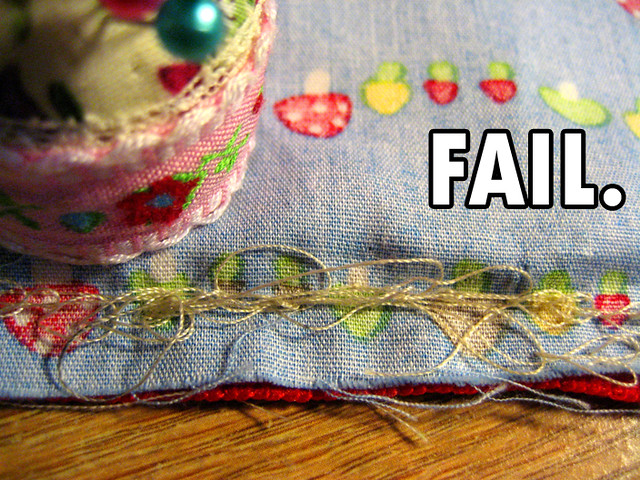
Maudlin: self-pitying or tearfully sentimental, often through drunkenness

Modulate: exert a modifying or controlling influence on

Portentous: of or like a portent; done in a pompously or overly solemn manner

Prescience: the power to foresee the future

Quid pro quo: a favor or advantage granted in return for something

Salubrious: health-giving, healthy; pleasant, not run-down

Saturnalia: the ancient Roman festival of Saturn in December; an occasion of wild revelry

Touchstone: a standard or criterion by which something is judged or recognized

Traumatic: emotionally disturbing or distressing; relating to or causing psychological trauma

Vitiate: spoil or impair the quality or efficiency of; destroy or impair the legal validity of.
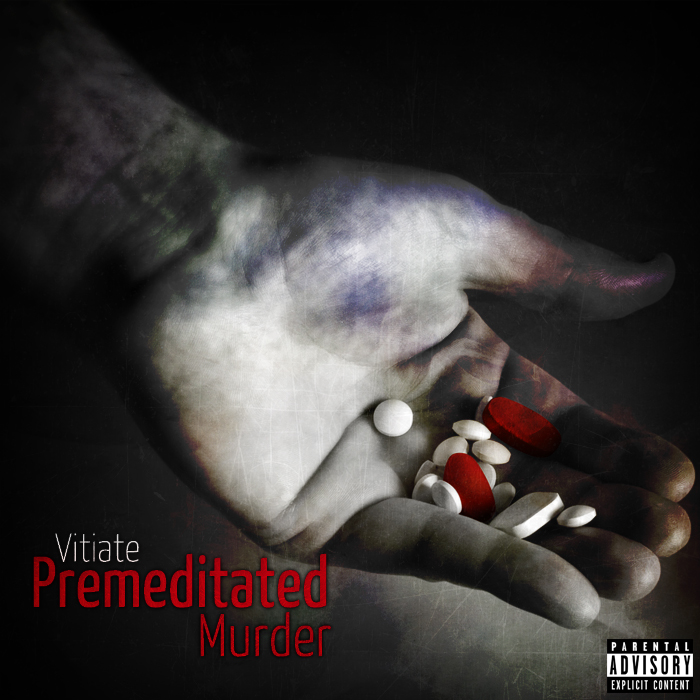
Waggish: humorous in a playful, mischievous, or facetious manner

I don't know how to resize these pictures :(

Bruit: spread a report or rumor widely

Contumelious: scornful and insulting behavior

Dictum: a formal pronouncement from an authoritative source; a short statement that expresses a general truth or principle

Ensconce: establish or settle

Iconoclastic: characterized by attack on established beliefs or institutions
In medias res: a narrative that begins somewhere in the middle of a story rather than the beginning

Internecine: destructive to both sides in a conflict

Maladroit: ineffective or bungling; clumsy

Maudlin: self-pitying or tearfully sentimental, often through drunkenness

Modulate: exert a modifying or controlling influence on

Portentous: of or like a portent; done in a pompously or overly solemn manner

Prescience: the power to foresee the future
Quid pro quo: a favor or advantage granted in return for something

Salubrious: health-giving, healthy; pleasant, not run-down

Saturnalia: the ancient Roman festival of Saturn in December; an occasion of wild revelry

Touchstone: a standard or criterion by which something is judged or recognized

Traumatic: emotionally disturbing or distressing; relating to or causing psychological trauma

Vitiate: spoil or impair the quality or efficiency of; destroy or impair the legal validity of.

Waggish: humorous in a playful, mischievous, or facetious manner

I don't know how to resize these pictures :(
Subscribe to:
Comments (Atom)
